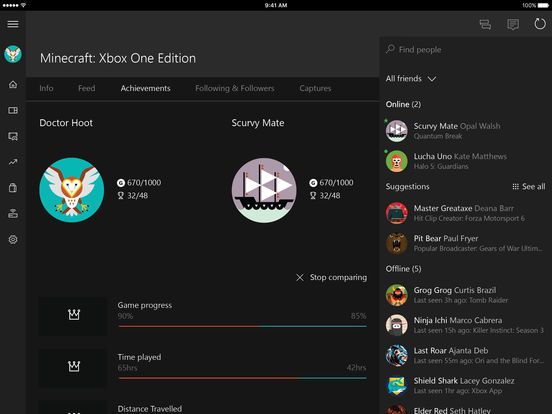Xbox Head: Competition Isn't Consoles, It's Your Time

In a landmark statement that redefines the modern entertainment landscape, the head of Xbox Game Studios, Matt Booty, has declared that the company's primary competitors are no longer other gaming consoles. Instead, Microsoft Gaming is now in a battle for attention against global media giants, citing "everything from TikTok to movies" as the new competitive frontier.
This significant shift in perspective offers a clear window into Microsoft's evolving strategy, moving beyond the traditional hardware-focused "console wars" and into a broader, more complex fight for the free time of consumers worldwide. The comments signal a fundamental change in how one of gaming's biggest players views its place in the market and provides crucial context for its recent multi-platform initiatives.
A New Battlefield for Attention
For decades, the video game industry has been largely defined by direct competition between hardware manufacturers. The narrative was simple: which console sold more units, which had the better exclusive games, and which offered the most powerful performance. According to Booty, that era is over.
“Our biggest competition isn't another console,” the Xbox executive stated, explaining the company's current outlook. “We are competing more and more with everything from TikTok to movies.”
This statement frames the challenge not as a race for hardware dominance, but as a struggle for engagement in what is often called the "attention economy." In any given evening, a person's entertainment options are nearly limitless. They could:
- Watch a blockbuster film on a streaming service.
- Binge a new series on television.
- Scroll through an endless feed of short-form videos on social media.
- Listen to a podcast or audiobook.
- Play a video game.
From Microsoft's perspective, a minute spent on TikTok is a minute not spent playing Halo or subscribed to Game Pass. This viewpoint elevates gaming from a siloed hobby into a direct competitor with every other form of digital entertainment. It’s a holistic view that acknowledges the immense pressure all media companies are under to capture and retain user engagement in a saturated market.
The Strategy Behind the Statement
Booty's comments are not just philosophical; they are the strategic underpinning for Microsoft Gaming's recent, highly-publicized business decisions. The move to bring iconic, formerly exclusive Xbox titles to other gaming platforms is a direct result of this new competitive mindset.
If the primary goal is no longer to sell the most Xbox consoles, but to get Xbox games and services in front of the largest possible audience, then releasing games on rival hardware makes perfect business sense. By making its software available more widely, Microsoft is meeting players where they are, rather than demanding they come to the Xbox ecosystem.
This strategy places a heavy emphasis on the value of its software and services, most notably Xbox Game Pass. The ultimate vision appears to be a platform-agnostic future where players can access their favorite Xbox games on their console, PC, or even a mobile device via cloud streaming. This "play anywhere" approach is designed to embed Microsoft's gaming division into a user's life, regardless of their preferred screen. By breaking down the traditional walls of the console garden, Xbox aims to compete for your time on a global scale, just like the streaming and social media giants do.
What This Means for the Future of Gaming
This strategic pivot from one of the industry's pillars has massive implications for both gamers and the industry at large. For players, it signals the slow erosion of rigid platform exclusivity. The idea of needing to own multiple expensive devices to play all the best games may eventually become a thing of the past. It promises a future of greater access and choice.
For the industry, it's a disruptive move that challenges the decades-old business model. Success is no longer being measured solely by the number of plastic boxes sold, but by monthly active users, subscription numbers, and total playtime across all platforms. This shift forces competitors to evaluate their own long-term strategies. Are they in the business of selling hardware, or are they, like Microsoft, in the business of capturing attention?
As Microsoft continues to execute this vision, the lines between gaming, film, and social media will likely blur even further. The real battle is for your screen time, and Xbox has just made it clear they plan to fight on every front.
Frequently Asked Questions (FAQ)
Who is Matt Booty?
Matt Booty is the Head of Xbox Game Studios, a senior leadership role at Microsoft Gaming. He oversees the development and strategy for the portfolio of game studios owned by Microsoft.
What was the exact quote from the Xbox executive?
Matt Booty was quoted as saying, “Our biggest competition isn't another console... We are competing more and more with everything from TikTok to movies.”
Why is Microsoft shifting its focus from console competition?
The company believes the modern entertainment market is no longer about which device a person owns, but about which app, game, or service they choose to spend their free time on. By competing with all forms of media, Microsoft aims to grow its gaming audience far beyond the traditional console market.